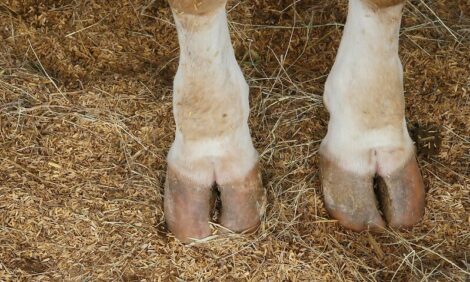



Gene Technology to Manage Animal Health
BELGIUM - The way in which herd and flock health is managed could change radically over the next 20 years, thanks to developments in molecular technology. This was one of the conclusions from a recent meeting in Brussels on 'Advances in Diagnostics'.
The meeting heard how developments in molecular technology are opening new possibilities for animal disease prevention and control.
"This application of molecular technology means that we can now understand diseases and animal health at a more fundamental level than ever before - at the gene level - and that will have a major impact on the way we approach animal health in the near future," said Dr Kirk Adams, director of product management at Life Technologies (pictured), who sponsored the meeting.
"Veterinarians now have access to a wider range of diagnostic tests than ever before.
"They are faster, more accurate and more precise than ever before.
"These advances have the potential to revolutionise the way in which we manage the health and welfare of food animals."
Dr Adams added that the advances in technology mean that diagnostic tools can be used to take a more pro-active and holistic approach to animal health.
"Diagnostic tests are no longer confined to finding out what killed an animal. We now have the means to take a more targeted approach to treatment and reduce the use of broad-spectrum drugs.
"In the future, we will even be able to use gene sequencing to determine the sensitivity of individual animals to specific treatments.
"Molecular tests, such as PCR, also facilitate disease eradication programmes, more strategic use of vaccination, more effective biosecurity measures and the management of diseases for which there is no effective treatment, such as Johnes disease, by allowing the identification of asymptomatic, persistently infected animals.
"There are many ways in which this technology can and will be applied to improve the health and productivity of food animals."
One of the key areas that was raised at the Brussels meeting was the use of new diagnostic tools to safeguard Europe's farm animals against the threat of new, emerging diseases.
"One of the biggest threats to animal health is the development of new types of pathogen or new diseases spreading from other regions. Schmallenberg virus is just one of the most recent examples.
"Molecular technology gives us the ability to characterise these threats quickly and accurately and to develop diagnostic tools that allow us to track the threat and assess our management," Dr Adams said.







